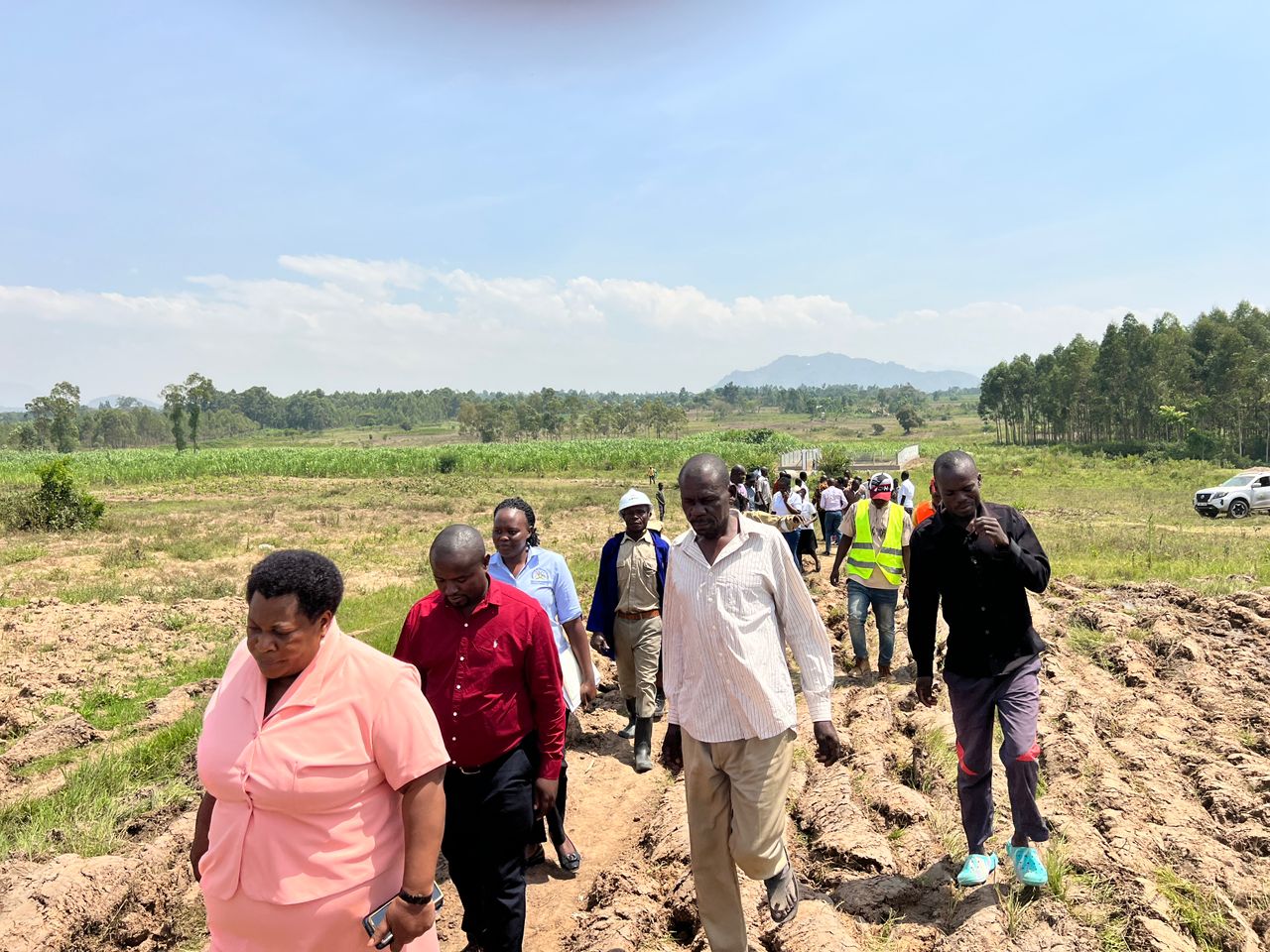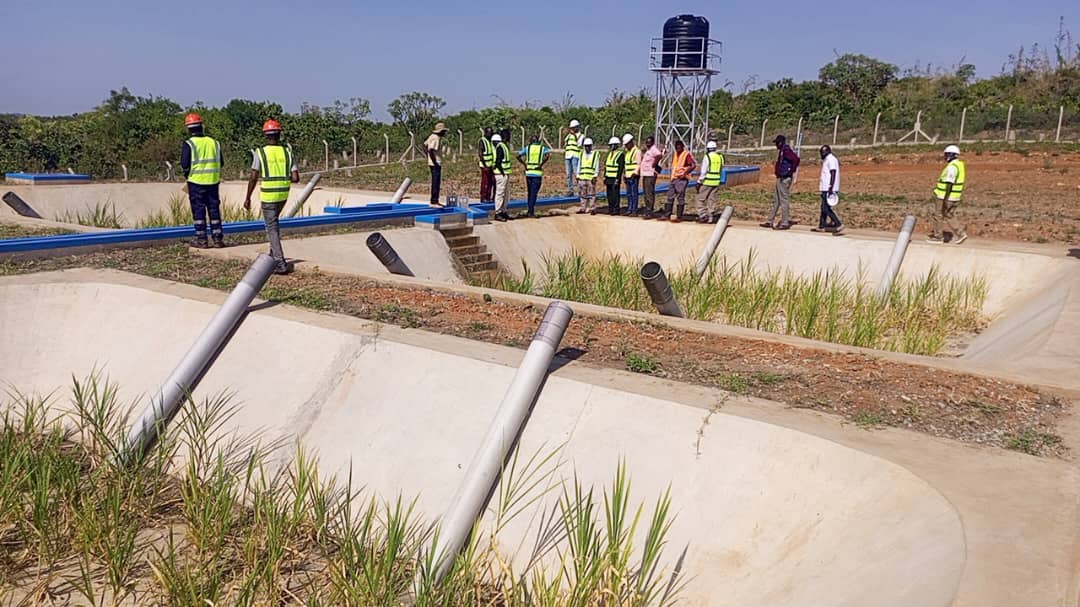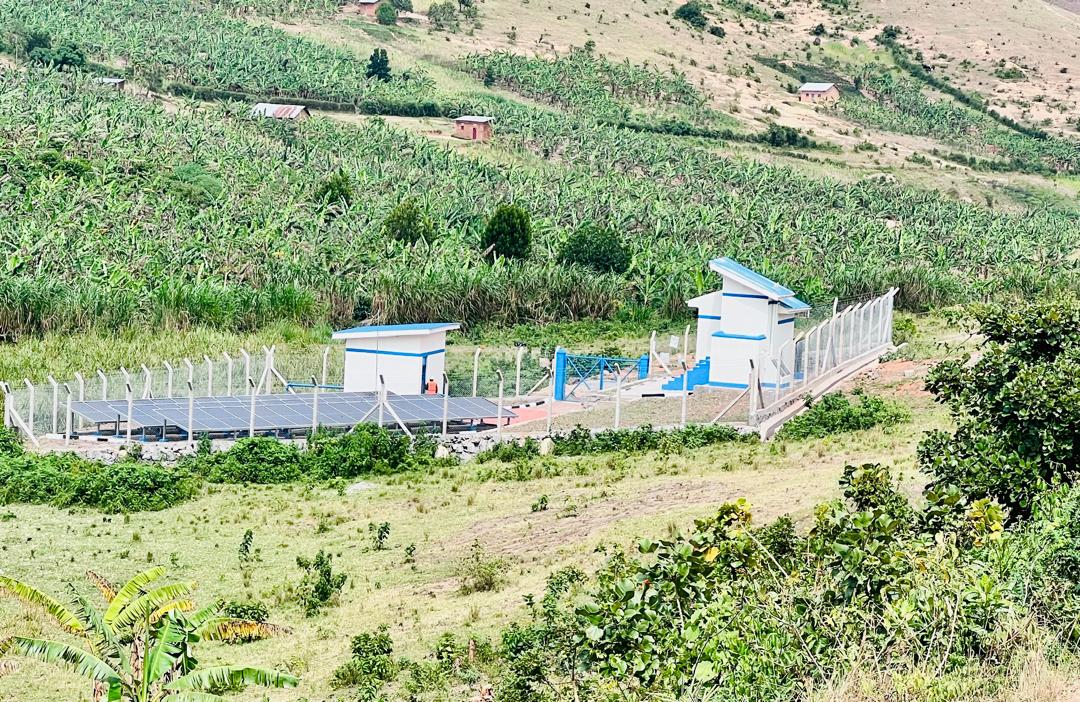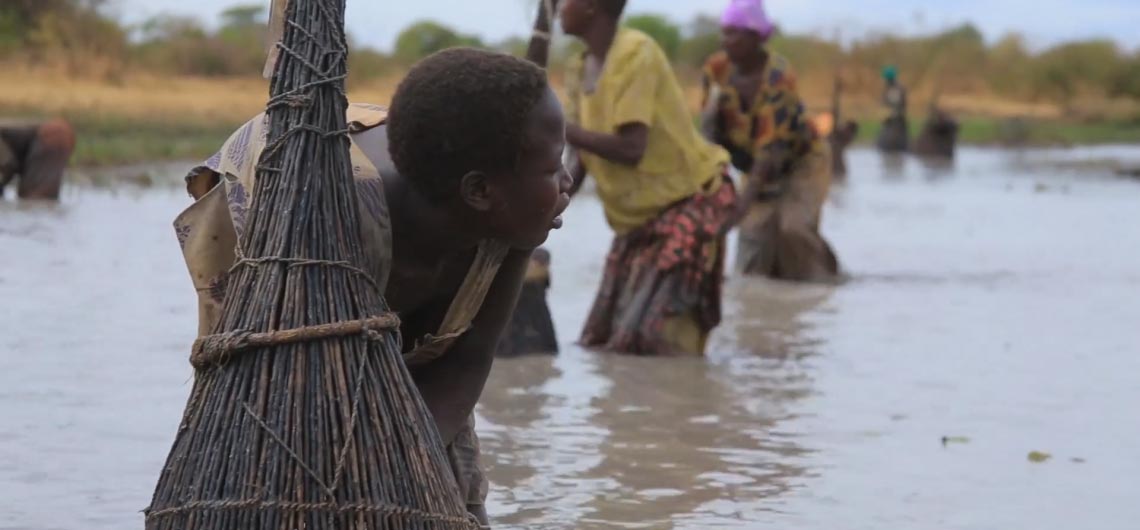
Oupei women express determination to protect the Komirya wetland.
Women play a considerable role in the degradation of wetlands. Usually, encroachers use family
members as a major source of labour and women form a big majority of the labour force.
Women are the ones who open the rice fields, plant, weed, and harvest, albeit the proceeds are
a preserve of men. Ms Aumo Jesca is among the women in Oupei village who previously
earned a livelihood from growing rice in the Komirya wetland. At the time, she knew little that
they were contributing to climate change impacts that have ended up hitting her community
hard.
“All women in my community participated in degrading the Komirya wetland. In our limited
wisdom, we thought we were doing the right thing; after all, the proceeds could help us fend for
our families. In the end, we destroyed our water sources, pastures for animals, construction
materials and our beautiful weather. Soon, we noticed changes in the environment and weather
patterns,” Aumo narrates. “I vividly recall how we suffered to find water, sauce and grass to
thatch our houses ─for those of us who still can’t afford iron-roofed structures,” she adds.
Indeed, for several years, women in Oupei village suffered from water scarcity, pasture and
grass for thatching their huts. Unlike now, there were no fish to catch to complement their
nutrition. “We could move long distances to access safe drinking water because the boreholes
had dried up. Our animals equally suffered. We could no longer afford to rear any animal
because it would be costly to take care of them,” Aumo further adds.
However, this suffering could soon end following the government intervention to restore the
Komirya wetland. Ms Aumo, who doubles as the LCI chairperson of Oupei village, is now
receiving all the government praises. The Ministry of Water and Environment, working with
Bukeddea district in 2023, restored 120ha of the degraded Komirya wetland using a grant from
the Green Climate Fund (GCF) and United Nations Development Fund (UNDP).
The intervention is now seen by many women in Oupei village as a blessing. “Women are now
very happy with what the government has done. We now have enough of everything that we
previously lost to degradation. Even our cattle are okay. The rearing of animals is now a
profitable enterprise, unlike before,” she added.
According to Aumo, women have taken centre stage in protecting the Komirya wetland because
they have understood the benefits of keeping it intact. “We shall protect this wetland jealously
as women. At least we have tested both scenarios. We now know that it is we who will suffer if
we allow history to repeat,” Aumo argues.
End
Youth are happy with the Komirya wetland restoration intervention
Mr. Noah Aide, a young man from Akuworo village in Bukeddea district, is euphoric at the
thought of the bourgeoning benefits resulting from the restored Komirya wetland. This feeling
hardly existed six months ago, in light of the severely degraded wetland.
In 2023, the Ministry of Water and Environment working with the district, mobilised communities
of Oupei to collectively restore the Komirya wetland covering four sub-counties: Bukeddea,
Kabarwa, Bukeddea Town Council, and Kolir. The wetland feeds into Lake Bisiina, one of the
Ramsar Sites.
“The situation was previously very bad here. You know Bukeddea district has a large number of
young people with little or no education. That leaves them with farming as the only source of
income. Moreover, the farmland is no longer productive owing to changing climatic conditions.
Consequently, the youth opted to flock to the wetland in search of livelihoods,” Aide says.
Whilst the young people invaded the wetland in search of livelihoods, their efforts only yielded
more disaster than the solutions they anticipated.
“When we (youth) invaded the wetland, we started experiencing changes in everything. The
weather partner has significantly changed. Rains became erratic, the winds were not usual, and
the drought was prolonged. The youth engaged in rearing animals had challenges because of
limited water and pasture,” he adds.
Aide says this situation has changed following the restoration of the Komirya wetland system.
The youth are more optimistic because the wetland has fully recovered, and the benefits are
forthcoming. “We can now say as youth we are happy with the government’s intervention
because we have started seeing good fruits,” he notes.
Now that the wetland is providing its functional benefits, Aide believes the youth should take the
lead in monitoring and implementing efforts to sustain the Komirya wetland.
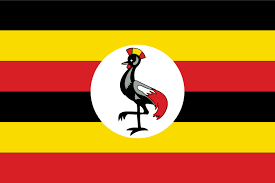 Official Website of the Ministry of Water and Environment
Official Website of the Ministry of Water and Environment

